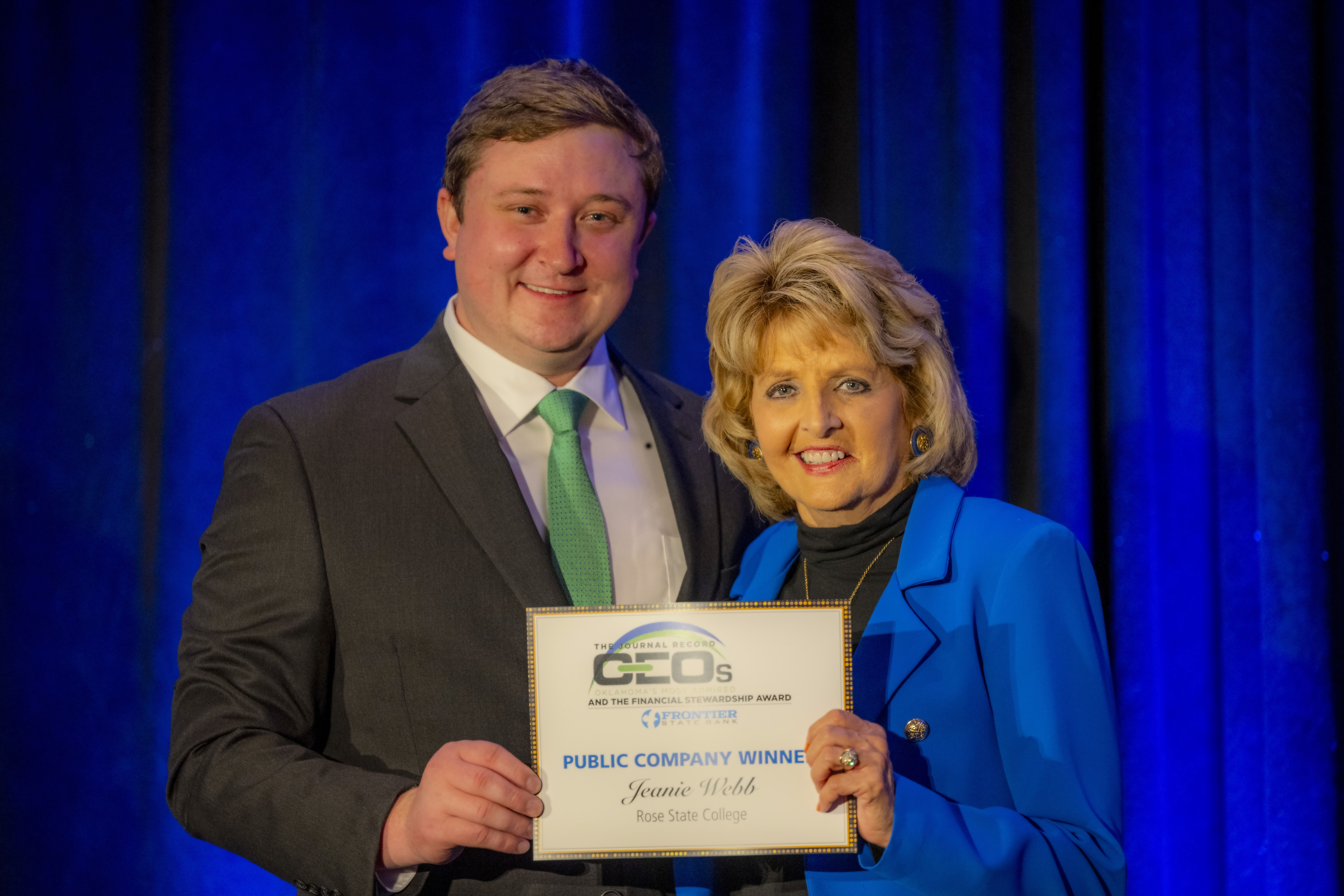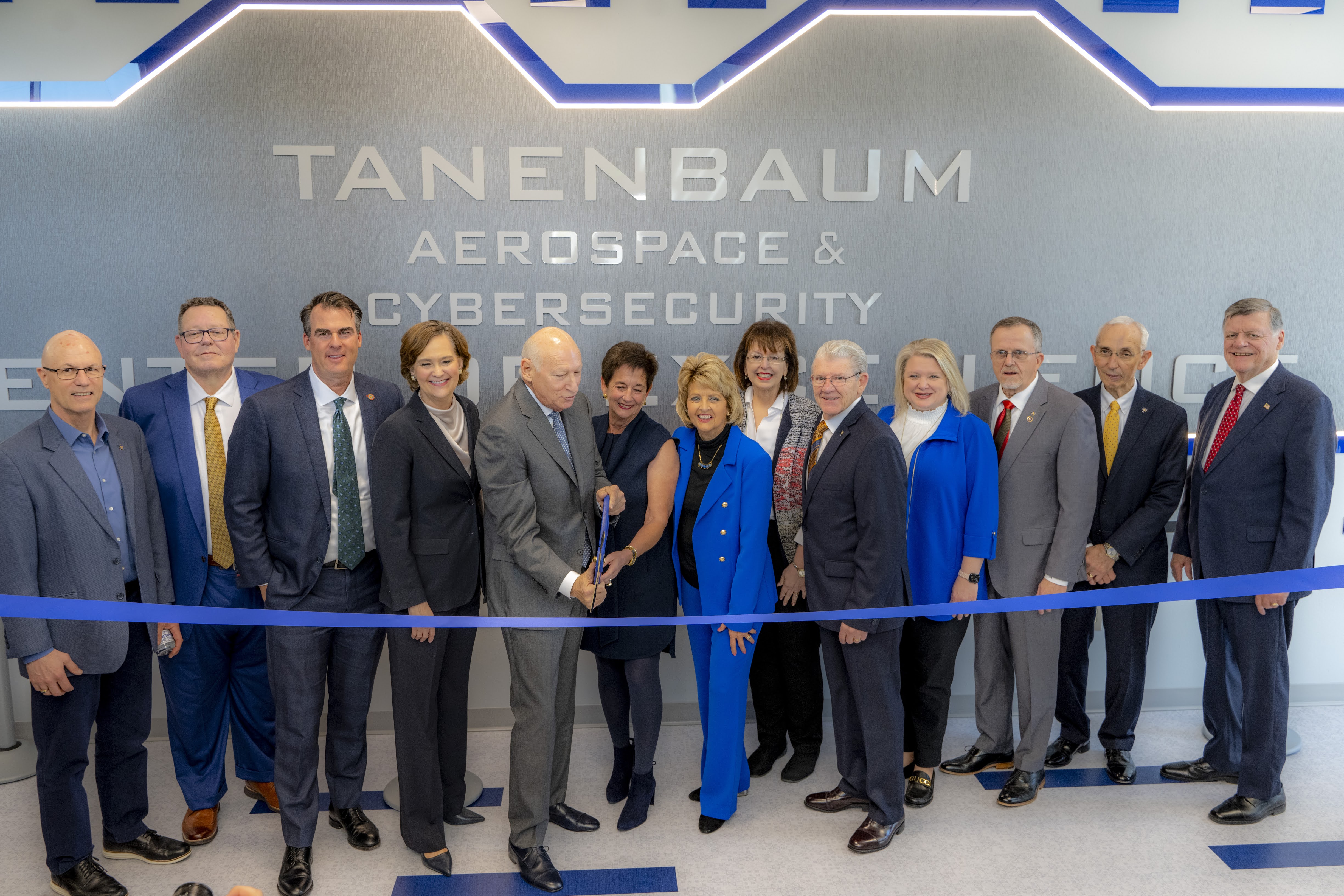Gray, Marie
Born: 1918
Date Interviewed: 2003
Interviewer: Dana Brotherton
Topic: Work experience during World War II
Q: When and where were you born?
A: I was born in Maud, Oklahoma, in Pottawatomie County. I lived on a farm and it was just a small community. I was born in 1918.
Q: Where did you attend school and for how long?
A: Harjo High School. It’s a little consolidated school between Earlsboro and Maud, Oklahoma. I graduated in 1935. I did not attend college. I wanted to, but my parents were not able to send me.
Q: What were your interests and hobbies as a young woman?
A: I loved sports. Loved to play basketball and softball.
Q: When did you begin to get a sense that the US was headed toward war?
A: I guess that was the bombing of Pearl Harbor. You knew then that something was going to happen.
Q: What was your reaction?
A: We were going to have to take care of Japan. We knew we would go to war and it would be a fight. You couldn’t come and do the United States that way.
Q: What was the atmosphere like and the mood of people in the town in which you lived?
A: That’s what it was. They would do anything to take care of Japan when they bombed Pearl Harbor.
Q: Were you married at the time? Or seeing anyone on a regular basis?
A: I was married.
Q: Did the two of you discuss how the war might affect your relationship?
A: Very much. We had a four-year old daughter. We lived in Norman, Oklahoma, and my husband was drafted, but he did not pass the physical and they sent him to Tinker Field to work. When the Douglas plant opened for the women to go to work – yes we discussed it. Someone had to take care of that child while I worked. So we had to make arrangements for that.
Q: When did the government announce that the women were going to be brought into the defense industry?
A: I couldn’t tell you the month, but it was 1943 as well as I remember.
Q: What was your reaction at the time?
A: Ready to go! I had two brothers who had been drafted and one was just out of high school and the other one finished high school and they took him. They both had joined the Navy and I was going to work for them. That’s the way it was.
Q: When did you decide to become a so-called “Rosie the Riveter,” or work in the war effort?
A: I guess they advertised the Douglas plant needed workers. We had moved to Midwest City at that time and lived on the last street north of this new little town on Fairchild. I decided then to see if I’d pass my physical and go to work.
Q: How did the people close to you react to your decision?
A: Ready to go!!
Q: Did you know a lot of other women in your area that were also going to become involved?
A: No, I did not because we were new up here and we knew very few people at that time.
Q: How did the process unfold as you went from civilian to defense industry worker?
A: It definitely changed. I changed everyone’s life. My routine was different. I had a little girl to take care of when I got home, and a husband to take care of. I worked 8 hours a day. It was a big change.
Q: What kind of job or jobs did you work? What were you responsible for?
A: We made the C-47, the cargo ship. I was in the fuselage department – number 503 was the department number. It was installation in the fuselage. We put in troop seats, parachute cables, black-out curtains, radio antennas, and a little bathroom, but it was so small, only one person could work on it. That’s what we did – installation in the fuselage.
Q: How many hours per day did you work and how many days per week did you work?
A: Worked 8 hours a day, 5 days a week.
Q: What kind of pay did you receive?
A: I don’t remember what I started at, but when I left I was making $.95 an hour, which was a lot then.
Q: How long did your employment last?
A: Till the war was over.
Q: What was the mood of your fellow female workers?
A: They were very good workers – everyone I knew. They just wanted to make good airplanes and do what they could and get those men home.
Q: Did the women enjoy the work, or did the work prove difficult for some of the women?
A: In my department we were fine. Other departments, I don’t know. Some of the work was more strenuous than others. But in my department it was fine.
Q: Did you make any life-long friends?
A: Not really. When the war was over, we just went our separate ways.
Q: Were the women from every kind of economic, ethnic, racial, and social background?
A: As far as I know. Now I didn’t see very many colored people at that time. But they could have been in other departments. But I didn’t know any in my department.
Q: What was the reaction of the fellow male workers?
A: I thought it went very well. We were mostly their helpers, or in my case it was. I had a male boss. I was his helper.
Q: How were you treated by them?
A: I was treated very well. Once in a while I’d get this little smile, you know [laughing], but very well.
Q: So the men were your bosses?
A: My boss, yes. There might have been other departments that had women, I really don’t know.
Q: What was the overall atmosphere at Tinker Air Force Base and the surrounding area?
A: It was just work, work, work. Really – work, work, work. I don’t know about Tinker – my husband worked there. It was a good atmosphere. Everyone just pitched in and worked and did what they could – we had to.
Q: After the war, was there any kind of pressure from the government and the media for women to leave the workplace and return to homes so that male veterans could once again have access to jobs?
A: I don’t remember anything about the media. I know that when the plant closed, the women were through. “You go home – we’re through with you now. Come and get your stuff and go home.”
Q: When the war was over, did you quit working?
A: Yes.
Q: How do you think the war years impacted the lives of women in this country?
A: I think the women found out that they could do something besides do housework and have babies. Most women were school teachers or nurses, and they found out they could do other things if they would let them.
Q: What impact did the working women of World War II and their experiences have on future generations of American women?
A: Opened the door for women to go to work – exactly.
Q: Did the skills you learned during the war serve you in any kind of way in the subsequent years after the war?
A: Not me. My husband had a job and I went home to have children and start a family life. Not really for me.
Q: What things stand out most in regard to your experience as a Rosie the Riveter or any of the other kinds of work you did during World War II?
A: Like I said, it opened the door for women to go to work. I knew if I had to go to work, I could. I could do something. So I think that was it.
Q: What kind of lessons did you learn?
A: That was it.
Q: If you would like to discuss or expand on anything at this time, please feel free to do so. Would you like to add anything?
A: I would like to say that it took a long, long time for the women to be recognized and even honored for what they did during World War II. They worked on ships, airplanes, made guns and bullets. They did all kinds of things all over the United States. A lot of women lost their lives, especially in shipyards. And they just sent us home. Some women, somewhere, kept working to get recognized, and now they are. But the young generation don’t know anything about it. It finally got in the encyclopedia a couple of years ago. My daughter is a school teacher in Houston, Texas, and she tells her school children about me. So progress has been made in that area, but they were a lot of women older than I was working who have already passed on who never heard “thank you.”
Q: So the government just kind of brushed you all aside?
A: They just said “go home. We’re through with you. Come and get your things.” But the war was over and they didn’t need any more airplanes, so I guess that’s all they could do. Now I understand that some women later went to work at Tinker Field, but at that time I didn’t care anything about working.



